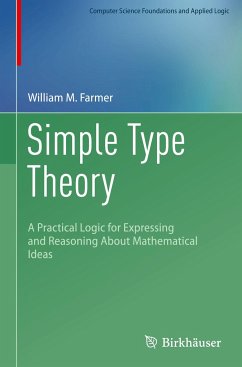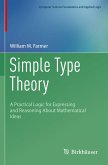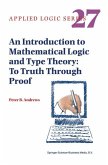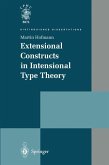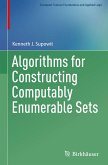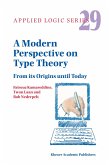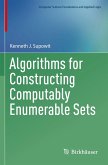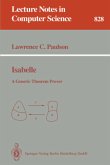This unique textbook, in contrast to a standard logic text, provides the reader with a logic that actually can be used in practice to express and reason about mathematical ideas.
The book is an introduction to simple type theory, a classical higher-order version of predicate logic that extends first-order logic. It presents a practice-oriented logic called Alonzo that is based on Alonzo Church's formulation of simple type theory known as Church's type theory. Unlike traditional predicate logics, Alonzo admits undefined expressions. The book illustrates, using Alonzo, how simple type theory is suited ideally for reasoning about mathematical structures and constructing libraries of mathematical knowledge.
Topics and features:
Offers the first book-length introduction to simple type theory as a predicate logicProvides the reader with a logic that is close to mathematical practicePresents the tools needed to build libraries of mathematical knowledgeEmploys two semantics, one for mathematics and one for logicEmphasizes the model-theoretic view of predicate logicIncludes several important topics, such as definite description and theory morphisms, not usually found in standard logic textbooks
Aimed at students of computing and mathematics at the graduate or upper-undergraduate level, this book is also well-suited for mathematicians, computing professionals, engineers, and scientists who need a practical logic for expressing and reasoning about mathematical ideas.
William M. Farmer is a Professor in the Department of Computing and Software at McMaster University in Hamilton, Ontario, Canada.
The book is an introduction to simple type theory, a classical higher-order version of predicate logic that extends first-order logic. It presents a practice-oriented logic called Alonzo that is based on Alonzo Church's formulation of simple type theory known as Church's type theory. Unlike traditional predicate logics, Alonzo admits undefined expressions. The book illustrates, using Alonzo, how simple type theory is suited ideally for reasoning about mathematical structures and constructing libraries of mathematical knowledge.
Topics and features:
Offers the first book-length introduction to simple type theory as a predicate logicProvides the reader with a logic that is close to mathematical practicePresents the tools needed to build libraries of mathematical knowledgeEmploys two semantics, one for mathematics and one for logicEmphasizes the model-theoretic view of predicate logicIncludes several important topics, such as definite description and theory morphisms, not usually found in standard logic textbooks
Aimed at students of computing and mathematics at the graduate or upper-undergraduate level, this book is also well-suited for mathematicians, computing professionals, engineers, and scientists who need a practical logic for expressing and reasoning about mathematical ideas.
William M. Farmer is a Professor in the Department of Computing and Software at McMaster University in Hamilton, Ontario, Canada.
"The book's intended audience is advanced undergraduates and graduates in mathematics and computing ... who need a practical logic for expressing and reasoning about mathematical ideas." My reading of this excellent and demanding (in the positive sense) book confirms that modern and applicable type theory has come into its own, one could say with a vengeance. ... I read this book linearly, that is, from first to last page, as a reviewer should." (George Hacken, Computing Reviews, February 16, 2024)
"The book is a good scientific book, and it could even be used as a textbook; that being said, it will work best at colleges and universities where there exists a strong research and education community specializing in simple type theory and Alonzo Church's approach." (Bálint Molnár, Computing Reviews, September 19, 2023)
"The book is a good scientific book, and it could even be used as a textbook; that being said, it will work best at colleges and universities where there exists a strong research and education community specializing in simple type theory and Alonzo Church's approach." (Bálint Molnár, Computing Reviews, September 19, 2023)

